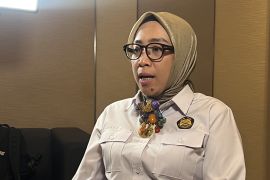On Monday, 11 car bombs hit nine different areas of Baghdad, seven of them Shiite-majority, while another exploded in Mahmudiyah to the south of the capital.Baghdad (ANTARA News/AFP) - Attacks including car bombs mainly targeting Shiite-majority areas of Iraq killed at least 54 people on Monday, officials said, taking the July death toll to more than 790.
More than 3,000 people have been killed in violence since the beginning of the year, according to AFP figures based on security and medical sources -- a surge in unrest that the Iraqi government has so far failed to stem.
On Monday, 11 car bombs hit nine different areas of Baghdad, seven of them Shiite-majority, while another exploded in Mahmudiyah to the south of the capital.
Two more car bombs exploded in Kut, while two hit Samawa and another detonated in Basra, all south of Baghdad.
A roadside bomb also killed five policemen, including a lieutenant colonel, north of Tikrit, while a magnetic "sticky bomb" killed a police captain in Anbar province.
The attacks wounded a total of at least 232 people.
One of the Baghdad bombings struck near a place where day labourers wait for work in the overwhelmingly Shiite area of Sadr City, killing five people and wounding 17.
Debris, including what appeared to be the remains of the vehicle that held the explosives, covered the street around the site of the blast, an AFP journalist reported.
The explosion also caused heavy damage to shops in the area, and the force of the blast smashed a white minibus, throwing it on its side.
The Monday violence came a day after attacks killed 14 people, among them nine Kurdish policemen who died in a suicide bombing in the northern town of Tuz Khurmatu.
Militants have carried out two highly coordinated operations in recent days, highlighting both their growing reach and the rapidly declining security situation.
Late on Wednesday, some 150 militants attacked the northern town of Sulaiman Bek, drawing security forces away from the main highway in the area.
About 40 militants then broke off, set up a checkpoint on the highway, and executed 14 Shiite truck drivers.
The highway killings were reminiscent of the darkest days of Sunni-Shiite sectarian bloodshed in Iraq in 2006-2007, when thousands of people were killed because of their religious affiliation or forced to abandon their homes under threat of death.
Lingering tensions between Sunnis and Shiites have been inflamed by persistent violence in Iraq and the civil war in neighbouring Syria, and there are growing fears that the country is slipping back towards all-out sectarian conflict.
And on the night of July 21, militants launched brazen assaults on Abu Ghraib and Taji prisons, sparking clashes that lasted for some 10 hours.
At least 500 prisoners, including senior Al-Qaeda members, escaped during the unrest, while at least 20 security forces members and 21 inmates were killed.
Iraq has faced years of attacks by militants, but analysts say widespread discontent among members of its Sunni Arab minority that the government has failed to address has fuelled the surge this year.
Iraq`s Sunni Arabs accuse the Shiite-led government of marginalising and targeting their community, including through unwarranted arrests and terrorism charges.
Protests broke out in Sunni-majority areas at the end of 2012 and are still ongoing.
In addition to the major problems with security, the government in Baghdad is also failing to provide adequate basic services such as electricity and clean water, while corruption is widespread.
Political squabbling has also paralysed the government, which has passed almost no major legislation in years.(*)
Editor: Heru Purwanto
Copyright © ANTARA 2013





